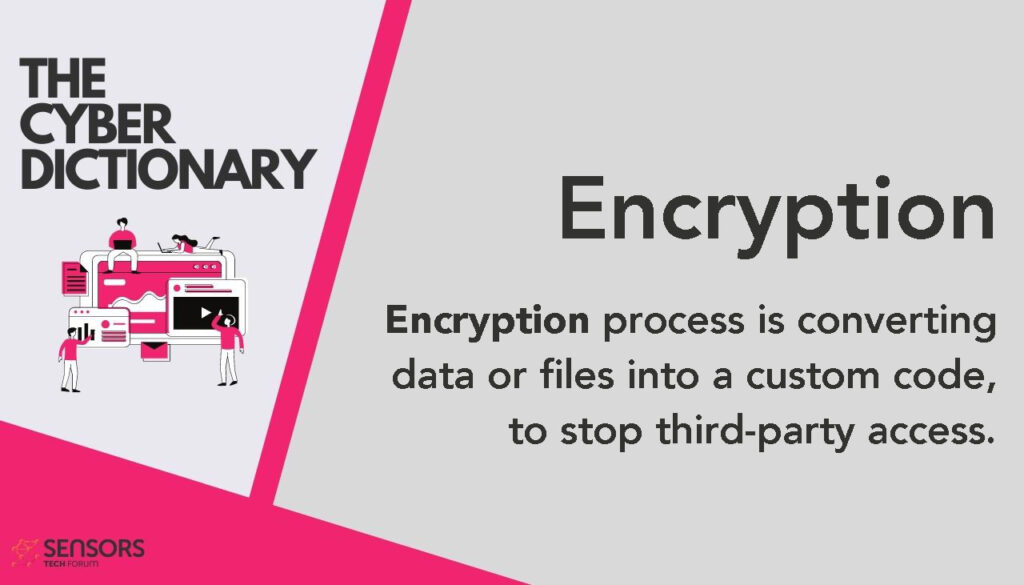What Is Encryption?
Encryption Definition
Short definition: Encryption process is converting data or files into a custom code, to stop third-party access.
Extended definition:
Encryption is the process of changing the information or data of a certain object, like a password or a file. Often encryption is used to mask information exchange, like email or chat. In cybersecurity, encryption is most often related to file encrypting viruses, also known as ransomware cryptoviruses. These are the types of malicious software that infect your computer and use encryption on your important files to extort you into paying ransom, which is most often in BitCoin. Be advised that encryption functions, using an encryption algorithm. The most often used encryption ciphers (algorithms) are the following kinds:
- RSA(Rivest-Shamir-Adleman).
- SHA(Secure Hash Algorithm).
- AES(Advanced Encryption Standard).
- ECDH(Elliptic Curve Diffie–Hellman).

Encryption can be of different strengths, for example “AES-256” or “RSA-1024” and in most cases the stronger the algorithm, the more difficult for the files or the information being exchanged to be decrypted, hence it is more secure. The main way to reverse the process is by using a decryption key which sort of “unlocks” the encrypted information and reverses the process. Without this key, depending on the cipher used, it may be difficult to decrypt the file or the information. Decryption keys are from the following types:
- Online keys (hosted online).
- Offline keys (hosted on your drive).
- Symmetric(Private) key.
- Public key.
For more definitions, check our Cyber Dictionary.

